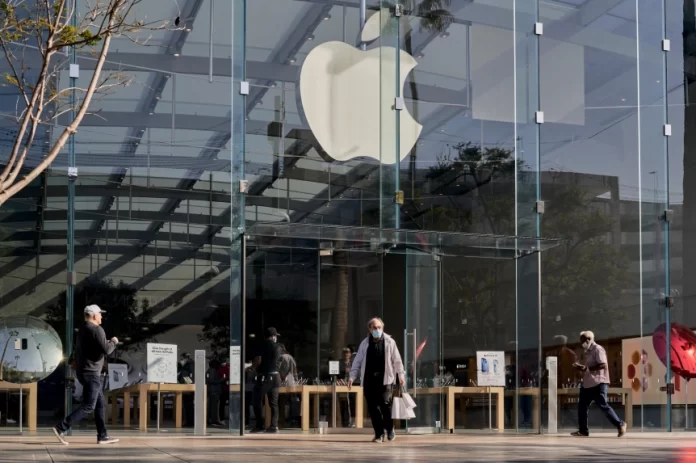Hundreds of Apple workers in Australia are set to strike again after almost two-thirds of employees rejected a pay and benefits deal, the latest escalation of a fight that has seen weeks of walkouts at stores around the country. Results released today show 68 per cent of Apple workers rejected a workplace agreement proposed by management with 87 per cent of Apple’s almost 4,000 Australian workers participating. Apple declined to comment on the results.
Members of the Retail and Fast Food Workers Union (RAFFWU), one of three involved in negotiations and representing around 200 workers, will meet tonight and union representatives say more strikes will “absolutely” be discussed. RAFFWU workers staged a one-hour walkout on Saturday, midway through the three-day ballot. It followed a full day strike earlier in October. Negotiations began in August when Apple proposed a new set of locked-in wage rises and conditions that unions say mean real wage cuts and poor work-life balance. Unions want Apple to guarantee wage increases that reflect inflation — which is tracking around 7 per cent in Australia, more than double the central bank’s target range — and weekends of two consecutive days rather than being split. Apple says its minimum pay rates are 17 per cent above the industry minimum and that full-time workers get guaranteed weekends. — Reuters
Meanwhile, in China workers departed Apple Inc’s biggest iPhone plant, seeking to escape hastily enacted Covid-19 measures that left many of the 200,000 staff grappling with inadequate living conditions. Local authorities from several regions in the central Henan province said they will receive home-going workers from Foxconn Technology Group after strict Covid-19 curbs were imposed at the world’s largest iPhone plant in Zhengzhou to quell an outbreak. Tensions at the Zhengzhou plant underscore the economic and social costs of President Xi Jinping’s Covid Zero policy, a rigorously policed system of mass testing and quarantine lockdowns. It also shows the potential risk to global supply chains and products from China’s approach, which demands lockdowns, business restrictions, and mass testing drives when even one Covid-19 case emerges. China’s zero-tolerance approach to the pandemic has idled factories and upended supply chains. Closed loops enable companies to stay operational during lockdowns but take a toll on workers, whose movements are severely limited, with some even required to sleep on factory floors.




















